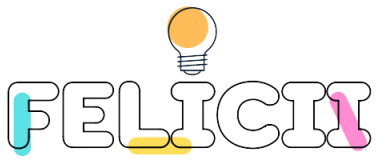Efficiency in Education: A Guide to Boosting Productivity in Learning

Educational productivity is a journey filled with opportunities for growth, discovery, and achievement. However, the path to academic success often requires more than just hard work; it demands efficiency and productivity in learning. In this blog post, we’ll explore various strategies and techniques to boost productivity in education, helping students make the most of their learning experiences.
Understanding Educational Efficiency
Educational efficiency refers to the ability to achieve maximum learning outcomes with minimal time, effort, and resources. It involves optimizing study habits, time management skills, and learning strategies to enhance comprehension, retention, and application of knowledge. By adopting efficient study techniques and productivity tools, students can streamline their learning process and achieve academic success more effectively.
Prioritize Learning Goals
To boost productivity in education, it’s crucial to prioritize learning goals and objectives. Clearly define what you aim to achieve academically, whether it’s mastering a specific subject, improving grades, or acquiring new skills. Break down larger goals into smaller, actionable tasks, and prioritize them based on importance and urgency. By focusing on the most critical learning objectives, students can allocate their time and resources more effectively and stay on track towards achieving their academic goals.
Optimize Study Environment
Creating an optimal study environment is essential for maximizing productivity in learning. Choose a quiet, well-lit space free from distractions where you can concentrate and focus on your studies. Keep your study area organized and clutter-free, with all necessary materials and resources within reach. Minimize interruptions by silencing notifications, setting boundaries with family and roommates, and scheduling dedicated study sessions during periods of peak concentration.
Adopt Active Learning Techniques
Active learning techniques engage students in the learning process, promoting deeper understanding and retention of course material. Instead of passively reading or listening to lectures, actively participate in your studies by asking questions, summarizing key concepts, and applying knowledge to real-world scenarios. Incorporate active learning strategies such as group discussions, problem-solving activities, and hands-on experiments to enhance comprehension and critical thinking skills.
Harness Technology Tools
Technology offers a wealth of tools and resources to enhance Educational productivity. Take advantage of digital tools such as note-taking apps, flashcard programs, and productivity apps to organize study materials, create study aids, and manage your academic workload more efficiently. Explore online resources such as educational websites, podcasts, and video lectures to supplement classroom instruction and gain additional insights into subjects.
Develop Effective Time Management Skills
Effective time management is crucial for academic success and productivity. Create a study schedule or timetable that allocates dedicated time slots for studying, attending classes, and completing assignments. Break down tasks into smaller, manageable chunks, and set deadlines to track your progress and stay accountable. Use time management techniques such as the Pomodoro Technique or time blocking to maximize productivity and minimize procrastination.
Practice Active Recall and Spaced Repetition
Active recall and spaced repetition are powerful learning techniques that enhance retention and long-term memory. Instead of passive review, actively quiz yourself on course material by recalling information from memory. Use flashcards or self-generated questions to test your understanding and reinforce learning through repetition over spaced intervals. By actively engaging with course material and regularly reviewing content, you’ll strengthen memory retention and improve learning outcomes.
Seek Feedback and Support
Don’t hesitate to seek feedback and support from instructors, peers, and academic resources. Attend office hours, participate in study groups, and seek clarification on challenging topics to deepen understanding and address gaps in knowledge. Take advantage of academic support services such as tutoring, writing centers, and academic advising to receive personalized assistance and guidance tailored to your learning needs.
Conclusion: Empowering Productive Learning
In conclusion, boosting productivity in education requires a combination of goal-setting, active learning, optimized study environment, technology utilization, time management, active recall, and support seeking. By implementing these strategies and techniques, students can enhance their learning experiences, achieve academic success, and unlock their full potential. With dedication, perseverance, and a commitment to continuous improvement, students can empower themselves to excel in their educational pursuits and beyond.









